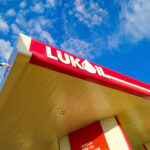
Oil split reduces pricy delays, company says, after disappointing first quarter
Iraq’s decision to split crude oil export flows into lighter and heavier grades has removed logistical problems and allowed several producers to lift self-imposed output curbs, according to Lukoil (ticker: LKOH) Deputy President for E&P Ravil Maganov. Maganov told reporters that the move to split crude grades helped the company reduce costly logistical errors, reports Reuters.
Iraq chose to split its supply of crude oil into two grades last year, adding Basra Heavy to its traditional Basra Light. The move was widely supported by buyers who had been dealing with variations in the quality of Basra Light as heavier, high-sulfur oil from newer fields was added to the blend.
The separation of Basra Heavy from Light has cut the waiting time for different crudes to arrive at terminals for blending, which cause expensive delays in the past. “All the problems with the restrictions were removed by the Iraqis. They created a separate system of transportation (for heavy oil),” said Maganov.
Earlier this month, Lukoil reported a disappointing first quarter. Q1 profits fell 60% with net income reaching just $690 million compared to $1.73 billion a year earlier, reports Bloomberg. Income from Iraq was especially disappointing, says Alexei Kokin, an analyst at UralSib Financial Corp. The company received $642 million from the Iraqi government compared to $1.05 billion in the previous quarter, he said.
Despite the lackluster first quarter in Iraq, Maganov said Lukoil expects to recoup its investments in the country’s West Qurna-2 field, which now produces 450 MBOPD. The Lukoil deputy president went on to say that the company will reinvest further.






